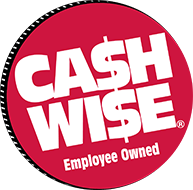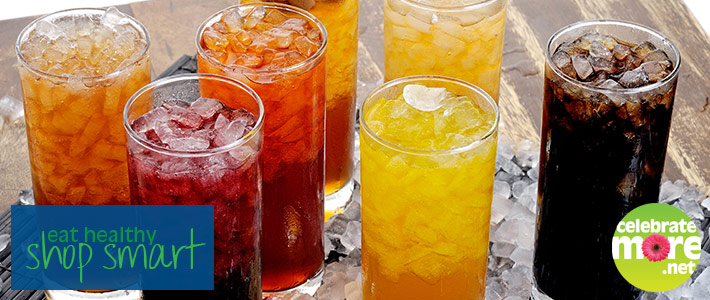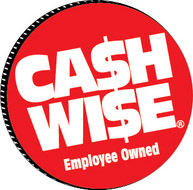It’s Spring in Minnesota, which means we have shed our layers and take every chance we get to sit out on the patio, right? And what’s patio weather without a refreshing beverage? However, it’s important to look at what kind of beverages you are drinking. Did you know the average American drinks nearly 42 gallons of sugar-sweetened beverages each year? Numerous studies have revealed that a higher intake of sugar-sweetened beverages leads to an increased risk of obesity, developing type 2 diabetes, heart disease, metabolic syndrome, high blood pressure, and gout.
Sugars in drinks are not hidden (they are listed on the Nutrition Facts label), but many of us don’t realize just how much sugar is in the beverages we are drinking daily. When looking at a Nutrition Facts label, you find both Serving Size and Servings Per Container at the top. Serving Size signifies the amount for one serving while Servings Per Container shows the number of servings in the container. So, if you plan on drinking more than one serving, do not forget to multiply the amount of Sugars by the number of servings you actually have to determine the total amount of sugar you are drinking.
 For example, your average 20-ounce pop bottle has 2.5 servings per bottle. Although each serving is only 27 grams of sugar, if you had the entire bottle, you would be drinking 67.5 grams of sugar. That’s more than 2 times the recommended amount in a day! For individuals who drink several sugar sweetened beverages per day, both the calories and sugars add up. A large fast food sweet tea plus a 20-ounce bottle of pop per day can run you 570 calories and 148 grams of sugar!
For example, your average 20-ounce pop bottle has 2.5 servings per bottle. Although each serving is only 27 grams of sugar, if you had the entire bottle, you would be drinking 67.5 grams of sugar. That’s more than 2 times the recommended amount in a day! For individuals who drink several sugar sweetened beverages per day, both the calories and sugars add up. A large fast food sweet tea plus a 20-ounce bottle of pop per day can run you 570 calories and 148 grams of sugar!
High sugar culprits include not only pop, but also, flavored coffee drinks, sweet tea, lemonade, Kool Aid®, juices, sports drinks, energy drinks, and alcoholic beverages. Sweeteners that can add calories to a beverage go by many names and may not be obvious on the ingredient list. Whether it is high-fructose corn syrup, honey, or even fruit juice concentrates, these common sweeteners add calories and are treated by our body in the exact same way. Common sweeteners that add calories to your beverages include:
- High-fructose corn syrup
- Corn syrup
- Syrup
- Fructose
- Fruit juice concentrates
- Honey
- Sugar
- Sucrose
- Dextrose
The American Heart Association recommends maximum daily intake of added sugars be no more than 100 calories or 6 teaspoons for women (just under half of a regular pop bottle) and 150 calories or 9 teaspoons for men (only 8 ounces of sweet tea). These calories add up, but there are plenty of options for reducing the amount of sugar in what you drink. Let’s start with water. Not a fan? Try fruit-infused water by slicing cucumbers, lemons, or strawberries into your water, along with herbs like mint and basil to add flavor without added sugar or calories. Other options include sparkling water like La Croix®, which only uses fruit oils to infuse its water products. When you do choose sweetened beverages, order the smallest size available and skip the whipped topping on your coffee drinks to help reduce your sugar intake.
Remember that some sugars occur naturally in foods such as fruit juice and milk products, but added sugars come from refined sources that provide little nutritional value along with extra calories. Starting today, let’s limit our intake of sugar-sweetened beverages by replacing our sugar-filled patio-weather drinks with naturally flavored waters or other low-sugar options.
Emily Parent, RD, LD










